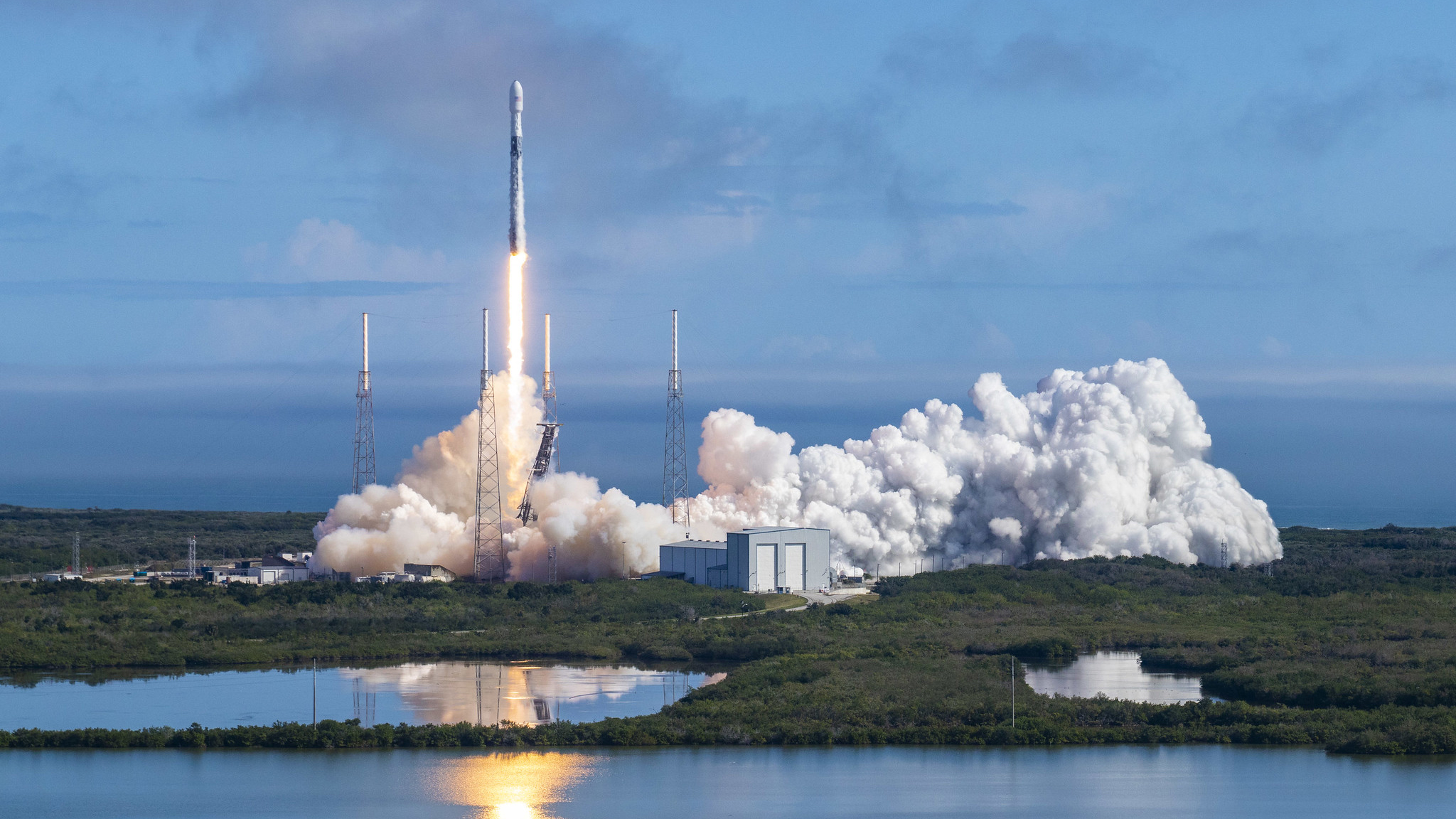SpaceX postpones Starlink satellite fleet launch due to Tropical Storm Arthur
The satellites will launch after SpaceX's Demo-2 mission.

SpaceX has delayed the launch of its next batch of Starlink internet satellites due to weather fallout from Tropical Storm Arthur.
The Starlink flight, which will loft 60 new satellites for SpaceX's growing megaconstellation from Cape Canaveral Air Force Station in Florida, will now lift off after the company's planned Demo-2 mission on May 27.
"Standing down from the Starlink mission, due to tropical storm Arthur, until after launch of Crew Demo-2," SpaceX wrote on Twitter today.
Video: Satellites see Tropical Storm Arthur from space
SpaceX's Demo-2 mission is the company's first crewed flight test of its Dragon capsule for NASA. The mission will launch two NASA astronauts to the International Space Station from Pad 39A of NASA's Kennedy Space Center in Florida.
SpaceX originally planned to launch the upcoming Starlink mission on Sunday (May 17), but was forced to postpone the flight to Monday after another mission, the U.S. Space Force's launch of an X-37B space plane, was also delayed by weather over the weekend.
SpaceX later announced that bad weather conditions from Arthur would push the launch back another to Tuesday, May 19. However, with surface winds expected to reach at least 39 mph (63 km/h), according to the National Hurricane Center, the launch has been pushed once again until sometime after May 27.
Get the Space.com Newsletter
Breaking space news, the latest updates on rocket launches, skywatching events and more!
Standing down from the Starlink mission, due to tropical storm Arthur, until after launch of Crew Demo-2May 18, 2020
The company received criticism after the first Starlink launches because astronomers and other scientists cited that the brightness of the satellites, which launch in batches of 60, was interfering with observations.
SpaceX experimented with painting the satellites with a dark coating but, with this launch, intended to test a new approach, a "sunshade," known as VisorSat, is a set of darkened shades that could deploy to block the sun. By eliminating the sun's bright reflection, the satellites would, in theory, be much less bright and much less visible in the night sky.
In April, SpaceX founder Elon Musk announced that the company's next launch, would test their new "sunshades," known as the VisorSat, but they did not specify when that launch would be or if it would carry multiple VisorSats, according to SpaceNews. This upcoming launch will mark SpaceX's eighth Starlink mission. Musk has said that all Starlink satellites would be equipped with sunshades by the ninth Starlink launch.
- In Photos: SpaceX launches third batch of 60 Starlink satellites to orbit
- SpaceX's Starlink broadband service will begin in 2020: Report
- Why SpaceX's Starlink satellites caught astronomers off guard
Follow Chelsea Gohd on Twitter @chelsea_gohd. Follow us on Twitter @Spacedotcom and on Facebook.
OFFER: Save 45% on 'All About Space' 'How it Works' and 'All About History'!
For a limited time, you can take out a digital subscription to any of our best-selling science magazines for just $2.38 per month, or 45% off the standard price for the first three months.
Join our Space Forums to keep talking space on the latest missions, night sky and more! And if you have a news tip, correction or comment, let us know at: community@space.com.

Chelsea “Foxanne” Gohd joined Space.com in 2018 and is now a Senior Writer, writing about everything from climate change to planetary science and human spaceflight in both articles and on-camera in videos. With a degree in Public Health and biological sciences, Chelsea has written and worked for institutions including the American Museum of Natural History, Scientific American, Discover Magazine Blog, Astronomy Magazine and Live Science. When not writing, editing or filming something space-y, Chelsea "Foxanne" Gohd is writing music and performing as Foxanne, even launching a song to space in 2021 with Inspiration4. You can follow her on Twitter @chelsea_gohd and @foxannemusic.
-
Brian This is a 'no brainer'!Reply
Any problem with the Starlink mission would delay Crew Dragon.
I'll be here at home whenever it is, watching.










